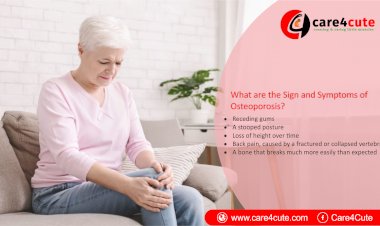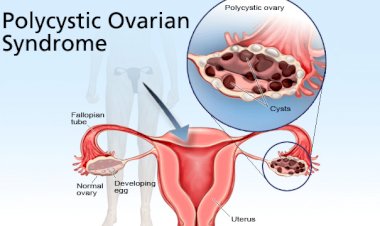What are the signs and symptoms of menopause?
It's not just hot flashes and missing periods. Get to know the sign and symptoms of perimenopause and early signs of premenopause.

What is Menopause?
Menopause is the time that marks the end of your menstrual cycles. It's diagnosed after you've gone 12 months without a menstrual period. Menopause can happen in your 40s or 50s, but the average age is 51 in the United States.
Women may have different signs or symptoms at menopause. That’s because estrogen is used by many parts of your body. As you have less estrogen, you could have various symptoms. Many women experience very mild symptoms that are easily treated by lifestyle changes, like avoiding caffeine or carrying a portable fan to use when a hot flash strikes. Some women don’t require any treatment at all. Other symptoms can be more problematic.
Menopause is a natural biological process. But the physical symptoms, such as hot flashes, and emotional symptoms of menopause may disrupt your sleep, lower your energy or affect emotional health. There are many effective treatments available, from lifestyle adjustments to hormone therapy.
Estrogen regulates the menstrual cycle and affects the following parts of the body:
- reproductive system
- urinary tract
- heart
- blood vessels
- bones
- breasts
- skin
- hair
- mucous membranes
- pelvic muscles
- brain
Sign & Symptoms of Menopause
In the months or years leading up to menopause (perimenopause), you might experience these signs and symptoms:
- Irregular periods
- Vaginal dryness
- Hot flashes
- Chills
- Night sweats
- Sleep problems
- Mood changes
- Weight gain and slowed metabolism
- Thinning hair and dry skin
- Loss of breast fullness
Symptoms, including changes in menstruation, are different for every woman. Most likely, you'll experience some irregularity in your periods before they end.
Change in your period (Irregular Periods) - This might be what you notice first. Your periods may no longer be regular. They may be shorter or last longer. You might bleed more or less than usual. These are all normal changes, but to make sure there isn’t a problem, see your doctor if:
- Your periods come very close together
- You have heavy bleeding
- You have spotting
- Your periods last more than a week
- Your periods resume after no bleeding for more than a year
Hot flashes
A hot flash is a sudden sensation of heat in the upper body. It may start in the face, neck, or chest, and progress upward or downward.
The skin may become red and patchy, and a woman will typically start to sweat. Her heart rate may suddenly increase, strengthen, or become irregular. Hot flashes generally occur during the first year after a woman's final period.
Lower fertility
Perimenopause is the 3-to-5-year period before menopause.
During the perimenopausal stage, a woman's estrogen levels will drop significantly. This reduces her chances of becoming pregnant.
Vaginal dryness
Dryness, itching, and discomfort of the vagina tend to occur during perimenopause.
As a result, some women may experience dyspareunia, or pain during sex . Women experience this pain due to lowering estrogen levels. These lower levels cause vaginal atrophy.
Vaginal atrophy is an inflammation of the vagina that happens as a result of the thinning and shrinking of the tissues, as well as decreased lubrication.
Also Read - How to reduce symptoms of menopause?
Other effects
Other symptoms of menopause include:
- a buildup of fat in the abdomen, sometimes leading to overweight and obesity
- hair loss and thinning hair
- breast shrinkage
- Night sweats
- Disturbed sleep
- Urinary problems
- Emotional changes (depression or low mood)
- Problems focusing and learning (low concentration)
Without treatment, symptoms usually taper off over a period of 2 to 5 years. However, symptoms can persist for longer. In some cases, vaginal dryness, itching, and discomfort can become chronic and eventually get worse without treatment.





































Comments (0)